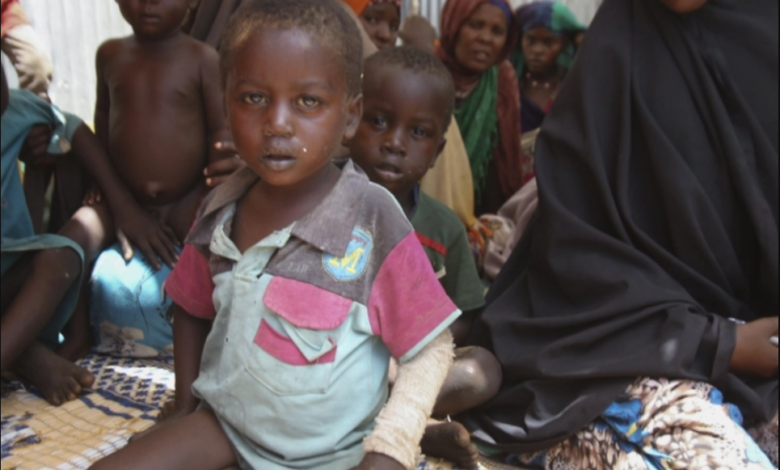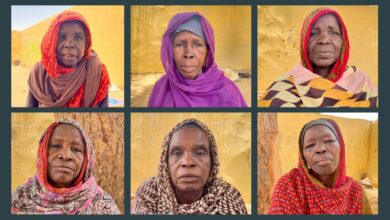26 Hours Of World’s Military Spending Enough To Fight Hunger – Aid Organisations
Only 26 hours of global military spending is enough to cover the $5.5 billion needed to help most at risk of starvation.

More than 200 Non-Governmental Organisations on Tuesday, April 20, appealed to governments across the globe to urgently increase aid to stop over 34 million people from being pushed to starvation this year.
“Every day, we bear witness to suffering and resilience. In Yemen, Afghanistan, Ethiopia, South Sudan, Burkina Faso, DRC, Honduras, Venezuela, Nigeria, Haiti, CAR, Uganda, Zimbabwe, Sudan and beyond we help people who are doing all they can to simply get through one more day,” the organisations said in an open letter on Tuesday.
“Every day, we work with people who are fully capable of producing or earning enough to feed themselves and their families. These people are not starving, they are being starved.”
“These girls and boys, men and women, are being starved by conflict and violence; by inequality; by the impacts of climate change; by the loss of land, jobs or prospects; by a fight against COVID-19 that has left them even further behind. Every day, we see that it is women and girls who suffer the most.”
A year since the UN warned of “famines of biblical proportions,” rich donors have funded just five per cent of the UN’s $7.8billion food security appeal for 2021, the organisations said in a press statement.
The organisations argued that the $5.5 billion additional funding recently called for by the UN World Food Programme (WFP) and Food and Agriculture Organisation (FAO) is equivalent to less than 26 hours of the $1.9 trillion that countries spend each year on the military. Yet, as more and more people go to bed hungry, conflict is increasing.
At the end of 2020, the UN estimated that 270 million people were either at high risk of or already facing acute levels of hunger.
“Already, 174 million people in 58 countries have reached that level and are at risk of dying from malnutrition or lack of food, and this figure is only likely to rise in the coming months if nothing is done immediately.”
Globally, average food prices are now the highest in seven years.
Conflict is the biggest driver of global hunger, alongside climate change and the COVID-19 pandemic. From Yemen to Afghanistan, South Sudan and Northern Nigeria, conflicts and violence are forcing millions to the brink of starvation.
In West Africa, 27.1 million people could face a food crisis including 12.8 million in Northern Nigeria by June-August. This represents an increase of 10 million from June-August 2020.
HumAngle reported that Nigeria would be pushed into famine in the next 10 years if production, consumption, and political-economic dynamics remain the same.
Another report also revealed that economic growth regression, the COVID-19 pandemic, and government policies have exacerbated food insecurity in Nigeria, as the prices of everyday products continue to rise.
At the outset of the COVID-19 pandemic, the UN Secretary-General called for a global ceasefire to address the pandemic but too few leaders have sought to implement it.
“Global leaders must support durable and sustainable solutions to conflict, and open pathways for humanitarians to access those in conflict zones to save lives.”
Amb. Ahmed Shehu, Regional Coordinator for the Civil Society Network of Lake Chad Basin said: “The situation here is really dire. Seventy per cent of people in this region are farmers but they can’t access their land because of violence, so they can’t produce food.”
“These farmers have been providing food for thousands for years – now they have become beggars themselves. Food production is lost, so jobs are lost, so income is lost, so people cannot buy the food.”
“Then, we as aid workers cannot safely even get to people to help them. Some of our members risked the journey to reach starving communities and were abducted – we don’t know where they are. This has a huge impact on those of us desperate to help.”
According to the coalition of NGOs, to address the food crisis in five Sahel countries alone (Burkina Faso, Mali, Niger, Chad, Nigeria), the funding requirement is estimated at approximately $1.5 billion but only 5 per cent has been received.
According to the Food and Agriculture Organization of the United Nations (FAO), world food prices stood at their highest level in seven years in February 2021.
Gabriela Bucher, Oxfam International Executive Director, also called on governments to reverse decisions on slashing food aid to millions of hungry people across the globe.
“The richest countries are slashing their food aid even as millions of people go hungry; this is an extraordinary political failure. They must urgently reverse these decisions. And we must confront the fundamental drivers of starvation – global hunger is not about lack of food, but a lack of equality.”
David Miliband, CEO and President of the International Rescue Committee, lamented that the worsening rate of global hunger is horrifying to witness.
“Every day we are seeing the human cost of hunger play out in the countries where we work. World leaders must act now to prevent unprecedented levels of suffering, through increased funding and diplomatic efforts to end conflict and improve humanitarian access.”
Inger Ashing, Save the Children’s CEO, said that thousands of children will be dying of hunger and disease in 2021, which she noted is a political choice – unless governments radically choose to help save the lives of children.”
The Danish Refugee Council Secretary-General, Charlotte Slente said: “Among the growing number of refugees and displaced persons, lack of access to food severely worsens an already critical situation. DRC calls on all governments to act now to prevent global hunger from adding further destitution to the world’s most vulnerable groups of people.”
Support Our Journalism
There are millions of ordinary people affected by conflict in Africa whose stories are missing in the mainstream media. HumAngle is determined to tell those challenging and under-reported stories, hoping that the people impacted by these conflicts will find the safety and security they deserve.
To ensure that we continue to provide public service coverage, we have a small favour to ask you. We want you to be part of our journalistic endeavour by contributing a token to us.
Your donation will further promote a robust, free, and independent media.
Donate Here




